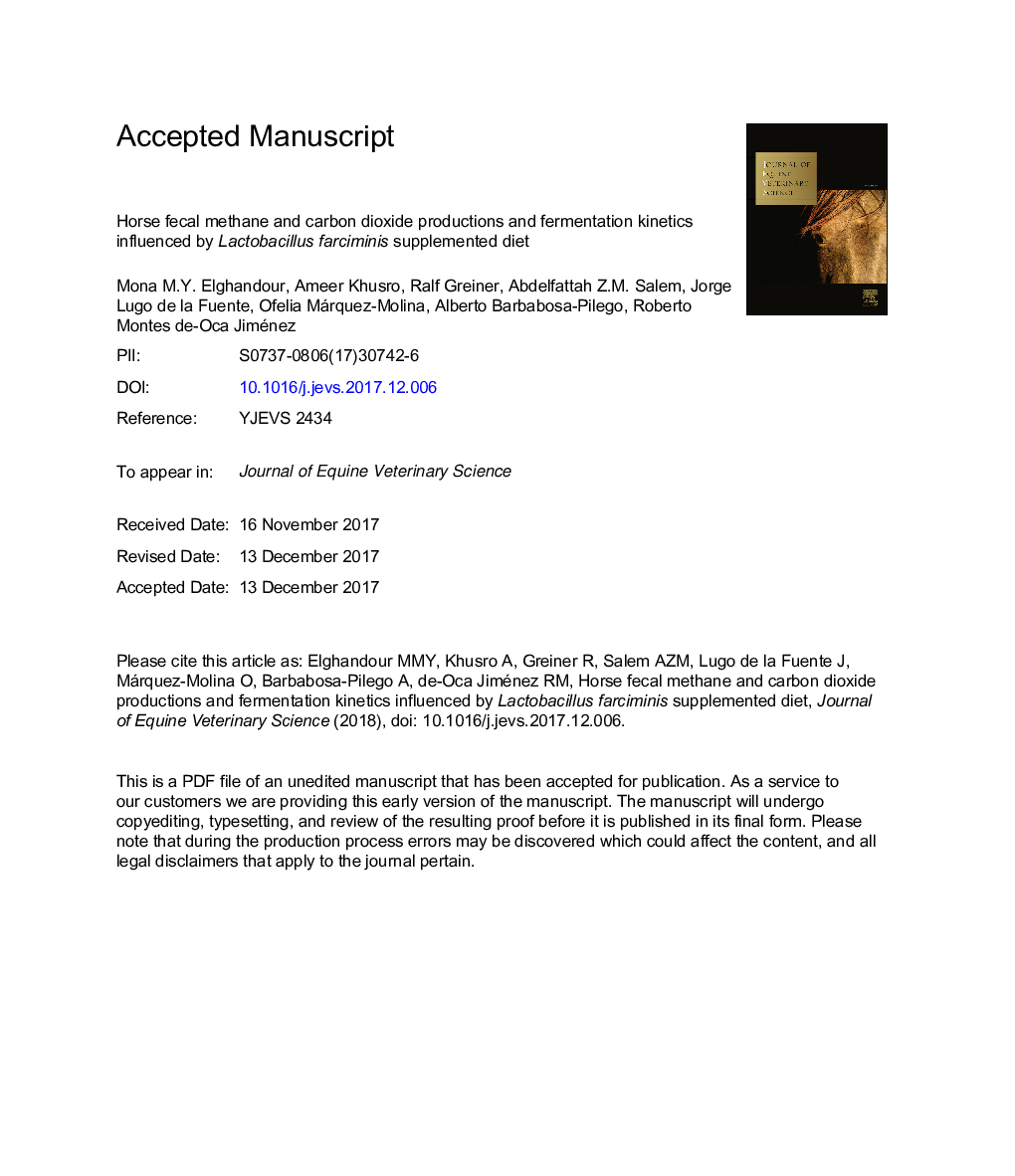| Article ID | Journal | Published Year | Pages | File Type |
|---|---|---|---|---|
| 8483227 | Journal of Equine Veterinary Science | 2018 | 20 Pages |
Abstract
The effect of equine fecal inocula on the in vitro gas, methane (CH4), and carbon dioxide (CO2) production was elucidated in the present study. Fecal inocula were obtained from four Azteca horses (aged 5-8 years, 480 ± 20.1 kg). In vitro fermentation (up to 48 hours) was performed with substrate consisting of 50% (w/w) oat straw and 50% (w/w) of a commercial concentrate in the presence of a commercial Lactobacillus farciminis product (0-6 mg/g DM of substrate). Incorporation of L. farciminis resulted in increased levels of asymptotic gas (GP), CH4, and CO2 production (P < .05). The lag time and the rate of GP were shown to be independent from L. farciminis addition (linear, P > .05; quadric, P > .05). Furthermore, a slight reduction in fermentation pH (linear, P = .029) and higher metabolizable energy values (P = .001) were obtained with L. farciminis supplementation in a dose-dependent manner. No significant impact of L. farciminis on dry matter degradability values was estimated (P > .05). In vitro gas, CH4, and CO2 production were increased (linear, P ⤠.001) in the presence of L. farciminis from 6 hours of incubation onward. In conclusion, addition of L. farciminis at a dose-dependent manner (2-6 mg/g DM of diet) was observed to be persuasive in terms of attaining amicable hindgut fermentation by improving fecal gas kinetics viz. gas, CH4, and CO2 production without any side effect.
Related Topics
Life Sciences
Agricultural and Biological Sciences
Animal Science and Zoology
Authors
Mona M.Y. Elghandour, Ameer Khusro, Ralf Greiner, Abdelfattah Z.M. Salem, Jorge Lugo de la Fuente, Ofelia Márquez-Molina, Alberto Barbabosa-Pilego, Roberto Montes-de-Oca Jiménez,
